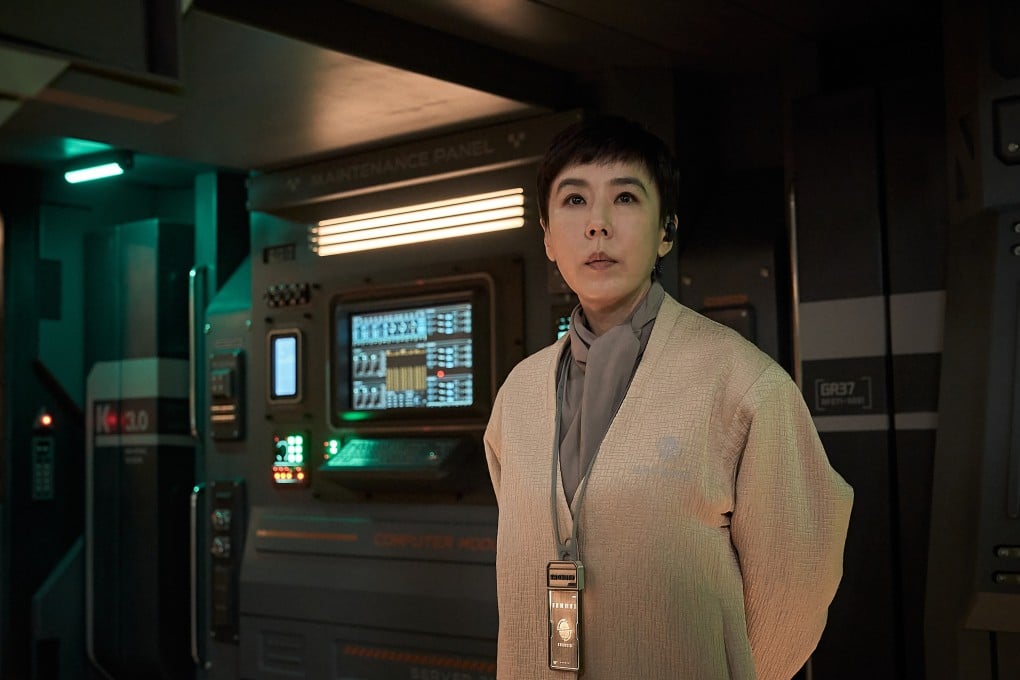Advertisement
Review | Netflix movie review: Jung_E – late Korean actress Kang Soo-yeon stars in Train to Busan director Yeon Sang-ho’s apocalyptic sci-fi thriller
- In the 22nd century a woman in a research institute takes drastic action after a programme involving droids, patterned on her mother, is shut down
- Jung–E, by Train to Busan’s Yeon Sang-ho, deals only lightly with themes relating to science or futurism, falling back on grief, betrayal and identity instead
Reading Time:2 minutes
Why you can trust SCMP
2

2/5 stars
The latest science fiction thriller from Train to Busan director Yeon Sang-ho, Jung_E is destined forever to be remembered for featuring the final screen performance by actress Kang Soo-yeon, who died in May 2022 after suffering a brain haemorrhage.
Ironically, the notion of preserving life, or least the human conscience, indefinitely via artificial intelligence is central to the film’s premise.
Advertisement
In the 22nd century, after apocalyptic climate change has driven much of the Earth’s population off-world, Kang’s character, Seohyun, works for a research institute that is tasked with developing robot soldiers to serve in an intergalactic civil war.
She does this to preserve the memory of her mother, Captain Yun Jung-yi (Kim Hyun-joo), a once-legendary mercenary who was left comatose following a mission many years earlier, and who now serves as the template for Jung_E, the institute’s new combat droid prototype.
Advertisement
Advertisement
Select Voice
Choose your listening speed
Get through articles 2x faster
1.25x
250 WPM
Slow
Average
Fast
1.25x